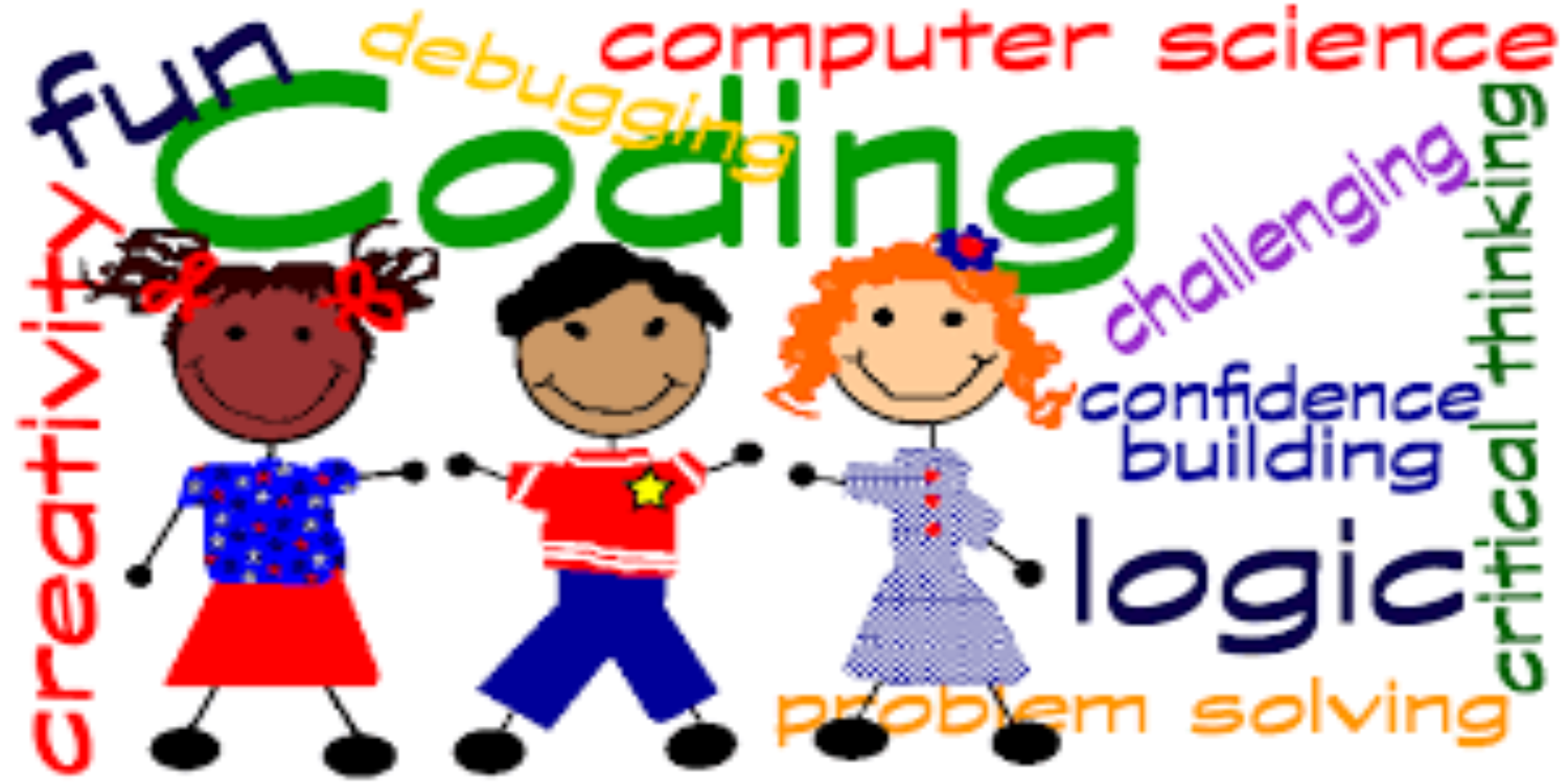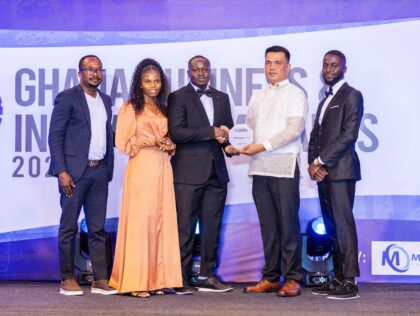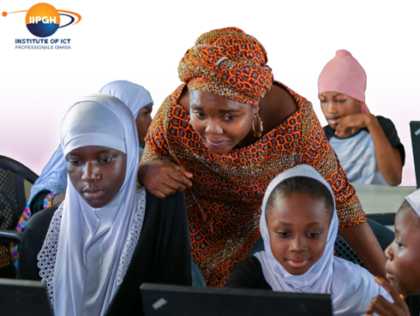On 4th December 2017, Google marked the celebration of 50 years of kids’ coding with a doodle. This was during the Computer Science Education Week. This celebration was mainly centered on the history of coding in the United States of America. This brings to mind a question; for how long have parents in Ghana been introducing their kids to coding? Or better still, is there a conscious effort to introduce kids to coding in Ghana at all?
Before these questions can be answered it might be more appropriate to demystify the concept of coding to the general public; even though this concept may have different connotations in other fields such as statistical data collection its simplicity makes it also suitable for use in ICT. This word used in the ICT context mainly stands for computer programming and is used especially in the early educational stages of children. Computer programming on its own covers all aspects of the process of resolving a computing problem that is either complex or repetitive enough so that it is preferable to have a computer figure it out instead of allowing a human brain to battle with it. In short, coding is the art and science of writing computer programs. These programs run on all the electronic gadgets we use nowadays. For example in a store, instead of keeping a book to log in all purchase transactions, it is now more time-saving to have a program record all the transactions on a computer. A more vivid example is our mobile phone; all the things we do with them are carried out by programs that keep repeating the same actions anytime we call on them, like accessing the phone contacts and placing a call. This is the extent to which coding or computer programming is important in a digital world.
The Role of Coding in Developing Innovation
Coding gives the opportunity to be creators instead of just consumers of high-tech products. As a way of self-expression and communication, the ability to make a computer do what you want allows you to solve problems by thinking out of the box. Usually coding involves breaking down computing problems into smaller manageable ones that can be solved independently and these solutions later brought together to create a complete one. This approach towards computational thinking develops collaboration or teamwork and leads to innovation when mistakes are eliminated until a working solution is found.
In this current information age, many governments are taking steps to introduce coding in the elementary schools’ curriculum. The figure below illustrates this trend. This relatively new paradigm is termed by some educationists as the new literacy or the new media. Since this trend is new, there are really no results to show for its impact yet but it is expected that the demand for tech-savvy workers will keep rising as the Ghanaian economy becomes more and more digital.

Fig.1 As computer programming becomes an increasingly indispensable skills, governments around the world are taking steps to introduce coding in the elementary stages of education
Advantages of Learning Coding at an Early Age
Learning coding from an early age is akin to learning how to ride a bike; it is easier to do so from childhood than in adult life. The flexibility of a child’s brain makes him apt to quickly pick new information about the step-wise approach to computational thinking. By learning to code using games, kids learn how to be successful at using computers without fear. There are now many tools used to teach kids not just to play computer games but also how to design their own.
In the current digital age, the demand for coding skills is on the rise. The use of the computer requires some level of programming in certain aspects to increase efficiency at the work place. Advanced Microsoft Excel users can testify that their basic knowledge of computer programming gives them an advantage in the use of macros over their colleagues who do not have this knowledge. Therefore the best place to start inculcating the idea of coding is at the elementary stage of education; due to the long learning curve required in becoming a good coder, it is better to start learning this early.
Learning how to code early also introduces the concept of learning from mistakes. Just like learning to play a musical instrument like the piano, through coding, kids also learn that they can make mistakes in the code they write; the program usually does not work until the code is right. They learn about the existence of failure and how to succeed after many failures. These soft skills are good to pick up at an early age.
Coding in Ghanaian schools
As part of the public secondary school curriculum in Ghana, a special consideration has been made to introduce the Information and Communication Technology subject at the Junior High School (JHS) level. However, the aspect of coding has not been included in the syllabus. This must be because the emphasis at this stage is probably on basic computer literacy. At this stage, the introduction to spreadsheet applications such as Microsoft Excel is done but no mention is made of the automating and programming functionalities of macros and VBA (Visual Basic Assistant) programs within the Microsoft Excel application; the closest attempt is the use of the AutoSum function (itself a VBA function).
At the senior secondary school level, the foundation created at the JHS level is raised to the level of being able to incorporate the ICT skills acquired into real-life projects and making presentations of these projects using the Microsoft PowerPoint Application. At this stage also, no real attempt is made at directing the minds of the students towards using the computer to develop programs for solving custom or user-defined problems.
Coding Culture Development Initiatives in Ghana
In Ghana, there are currently various initiatives to inculcate the culture of coding among the young ones. A few of these initiatives though not all are worth mentioning and looking into:
- Coderdojo in partnership with AirtelGhana; through this initiative, about 30 kids from La Wireless cluster of schools were introduced to the principles of coding and how they can be applied to solve problems in the society.
- Coderdojo in partnership with IBM Ghana; in October 2016, Coderdojo partnered with IBM to train 16 kids in web development coding technologies such as HTML and CSS.
- Microsoft AppFactory; Mobile web Ghana in partnership with Microsoft Ghana committed to train about 40 young Ghanaians on the rudiments of mobile app development. The Ghana AppFactory is part of Microsoft’s 4Afrika initiative. The objective of the AppFactory is to equip young software developers and coders with hands-on experience and also help them develop critical skills so that they secure jobs or create their own businesses.
- Africa Code Week; this original SAP idea seeks to equip parents, teachers and educators with the required skills and materials needed to train children in the coding discipline. The Ghanaian organisation locally partnering with SAP (the global enterprise software producer) for this initiative is DreamOval Foundation.
Challenges of the kids’ coding development programs
All these initiatives have one objective in common; to expose young Ghanaian students to the concept of using coding or computer programs to solve real-life problems. The main challenge is however that the current syllabuses in both junior and senior high secondary schools are not aligned with this objective. At both levels, there is no deliberate intention to guide the students to the everyday uses of coding. The current Ghanaian government seems to have identified this training gap and intends to make coding part of the curriculum at all levels of education from this year.
The other obvious challenge is that of the existence of adequate coding instructors. The process of learning how to code is a discipline geared towards learning to speak the language of computers and requires a little instruction just as the learning of the English language. In this regard, it can be said that there is a potential dearth of coding instructors. At the early stages such as junior high level, the introduction to coding needs to be done in a fun way in order to maintain the kids’ interest. The role of the instructor is critical at this stage.
Conclusion
In the long run, one may ask why there is this current drive to promote coding at the early stages of education. The answer may be found in the “catch them young” phrase; catch them young and they shall be yours forever. Because coding in itself requires a certain way of thinking, it is easier to develop good coders by making them start this art or science at an early stage. Coding is definitely one way of creating efficient processes or simply put, through coding a lot can be done technologically within a shorter time. Introducing coding at an early age does not mean every kid will be good at it. It just helps in making them know that this is how computers work and this knowledge will go a long way to create a more productive Ghanaian society.
Author: Yayra de Souza – Telecommunications Consultant (Member: Institute of ICT Professionals, Ghana)
For comments, contact author yayra.de.souza@iipgh.org Mobile: +233543758923





